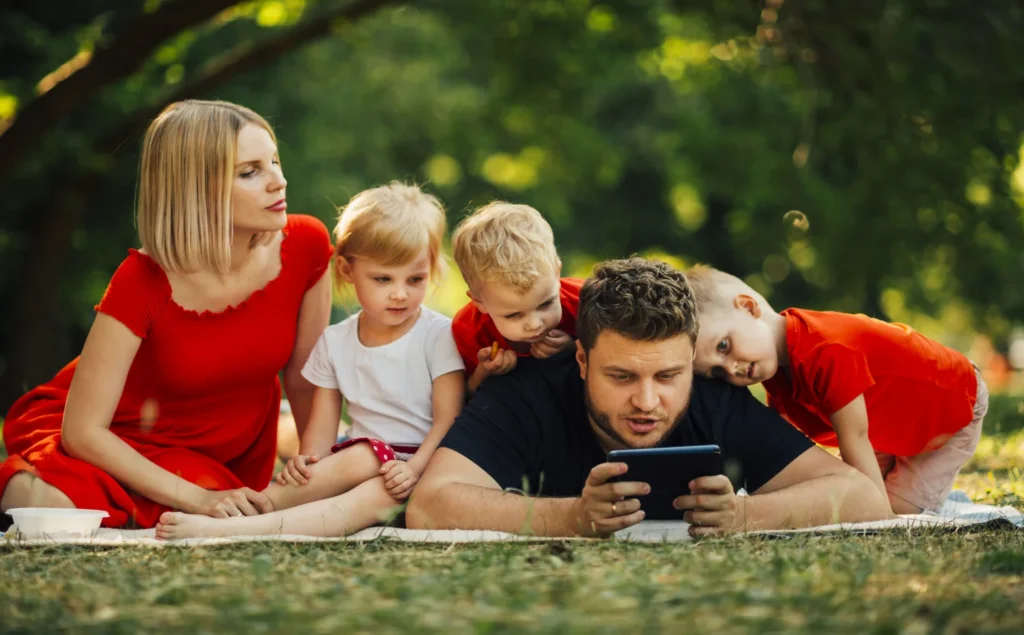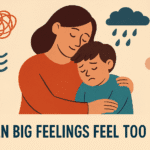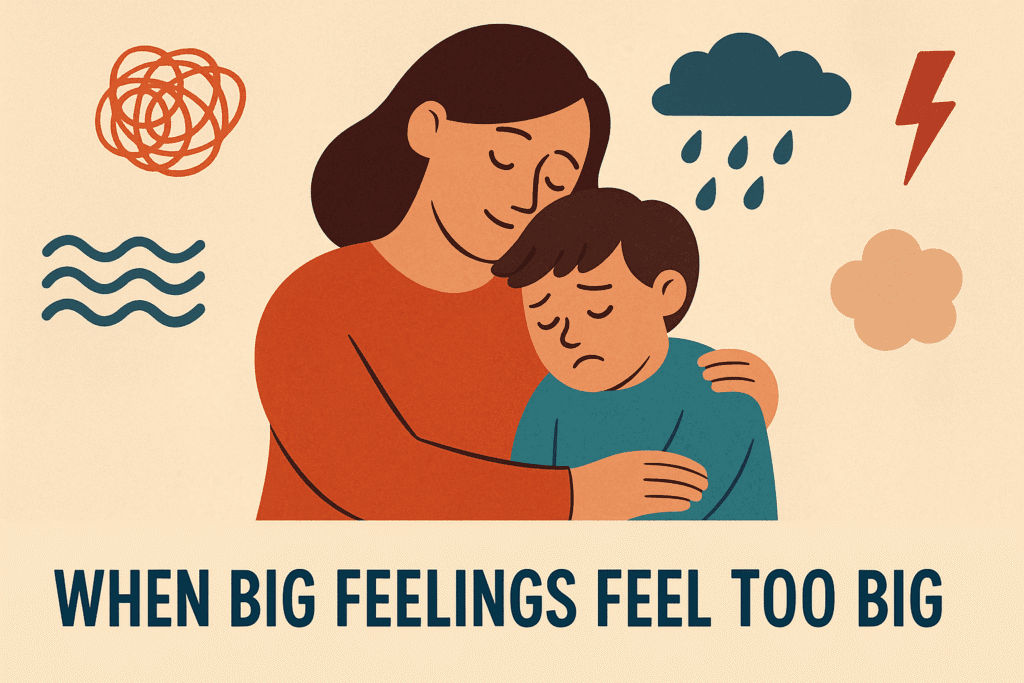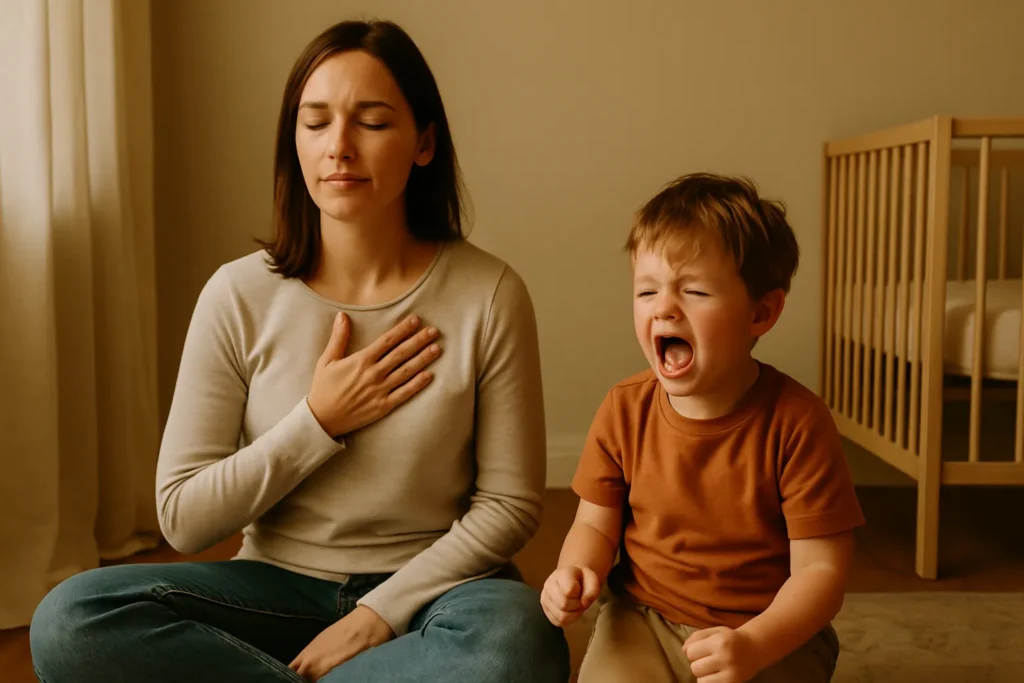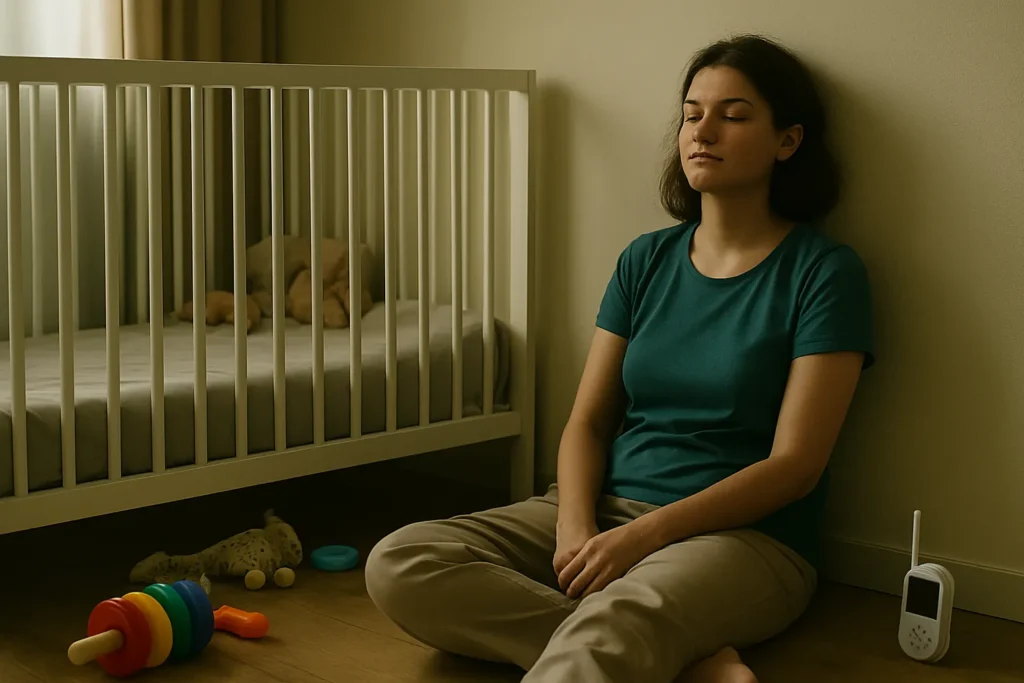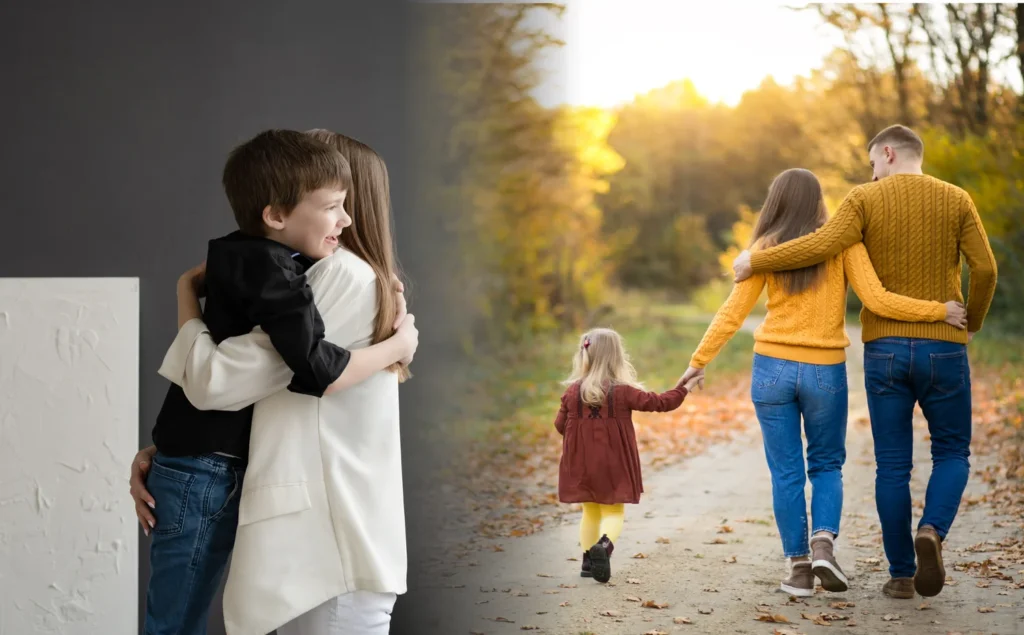Introduction: When Big Feelings Feel Too Big
You’ve seen it before—the clenched fists, the trembling lip, or the meltdown over “the wrong socks.” In that moment, it’s not just defiance or moodiness. For many kids, these are signs of inner anxiety trying to find a way out.
Kids anxiety parenting is not about repairing them. It’s about making them feel heard, held, and understood. And in a world that is moving quickly, where screens, timetables, and worries are finding their way into their small lives, children need peaceful adults who can guide them through their storms—and not hurry them through it.
If you’re wondering how to be that calm in the chaos, this guide offers realistic, heart-centered ways to support your child’s mental health—without overwhelming yourself.

1. Name It to Tame It
When anxiety shows up in kids, it doesn’t always look like worry—it can look like anger, avoidance, tummy aches, or “acting out.” The first step is helping them name what’s happening. Labeling feelings gives those big emotions structure—and makes them less scary.
Try this:
Say, “It looks like your body is feeling nervous right now. Want to sit together and figure it out?”
2. Teach the Calm-Down Toolkit
Children require more than “just breathe” reminders. They require tools that do work for their bodies. Create a “calm-down kit” with them using something they select—perhaps a fidget toy, coloring pencils, lavender oil, or a soft object.
Also teach rapid body resets such as:
- 5-4-3-2-1 grounding technique
- “Blow out the birthday candles” (deep breathing)
- Movement breaks (jumping jacks, animal walks, stretching)
3. Validate First, Problem-Solve Later
It’s tempting to say, “There’s nothing to worry about.” But to your child, it feels real. Validating their feelings doesn’t make them bigger—it makes your child feel safe enough to let them pass.

Say this instead:
“I can see why that feels scary to you. I’m here. We’ll get through it together.”
4. Be Their Nervous System Anchor
Kids co-regulate through the people caring for them. So when you are calm, they will feel calmer too. But when you get worried about their worry? It makes it worse.
What works:
- Slow your own breathing
- Talk quieter, not louder
- Sit down to their level
- Use physical touch (if they like it)
Sometimes the best thing you can do is sit with them silently until the wave is gone.
5. Establish a Safe Emotional Vocabulary at Home
Make emotions an everyday conversation, not a crisis one. Use books, story time, or dinner discussion to inquire about such things as:
- What color was your feeling today?
- Was there something that made you feel proud/scared/ridiculous?
This makes emotions okay and allows your child to feel and express without shame.
6. Don’t Wait for a Meltdown to Practice Coping
Coping skills aren’t limited to “after the fact.” Incorporate them into your child’s daily schedule when they’re already relaxed—such as taking deep breaths before school or stretching before bedtime. This creates confidence and resilience over time.

7. Know When to Ask for Help
Supporting an anxious child doesn’t have to mean going it alone. If your child’s anxiety is intruding on daily life—school refusal, sleep difficulties, hyperfrequency reassurance-seeking—seek out a pediatric therapist. You’re not failing if you seek assistance—you’re setting an example of self-awareness and strength.
Final Thoughts: You’re Not Alone in This
There is no ideal script for anxiety parenting. But there is strength in presence. When your kid knows that their emotions are okay with you, they see that anxiety isn’t the boss—it’s only one of many feelings that they’ll learn to navigate.
And don’t forget: your calm presence trumps your perfect response.
Check out our insightful articles on Parenting and children’s growth and development at Roots, Wings & Wellness.
Join Instagram community to follow interesting perspective on blog takes.
- How to Help Your Kids Navigate Anxiety and Big Emotions

- This One Habit Made Me a Calmer Parent

- You Recycle and Still Feel Powerless? Understanding Eco Anxiety

- What If You’re Not Lazy—Just Overstimulated?

- The Hidden Emotional Cost of Gentle Parenting

- Can a 5-Minute Nature Break Reset Your Mood?

- Why You’re Tired—Even After 8 Hours of Sleep

- Gentle Parenting vs Traditional Parenting: Which Approach is More Effective?



